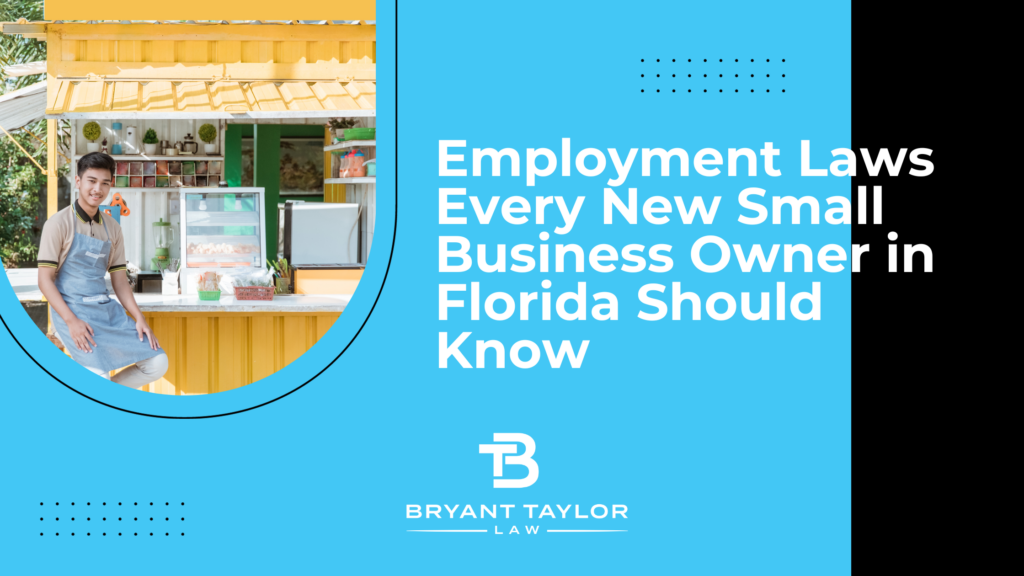
Florida is a dynamic and potentially rewarding economic landscape. The Sunshine State, known for its favorable business environment, diverse demographic, and strategic geographic position, presents a wide range of regulations that business owners must navigate carefully. In particular, understanding and through employment laws are essential to protecting your business from legal challenges. Compliance also establishes a foundation that ensures fair and equitable treatment for your employees.
Without such diligence, businesses may face financial ramifications and ruin their reputation. Therefore, grasping employment laws, from wage regulations to anti-discrimination statutes, is invaluable for new small business owners in Florida.
Upholding Wage & Discrimination Laws
Ensuring that your business adheres to wage and discrimination laws in Florida is paramount. As of this writing, the baseline requirement is to honor the state’s minimum wage of $12.00 per hour (which will be increased to $15 in 2026), and this is notably higher than the federal minimum. This commitment to fair compensation should also extend into overtime. Any hours worked over the conventional 40-hour workweek should be compensated at 1.5 times the regular pay rate.
Discrimination and harassment prevention is also essential for maintaining a respectful and lawful working environment. Your employment decisions regarding hiring, promotions, or terminations must be free from biases related to race, color, religion, sex, national origin, age, disability, genetic information, or marital status. Not only is this ethical but it is also mandated by law.
Facilitating Leave and Observing Federal Acts
Facilitating employee leave and abiding by the Family and Medical Leave Act (FMLA) stipulations is equally essential. Eligible employees should be granted up to 12 weeks of unpaid leave per year for specified family and medical reasons, providing they have been employed for at least one year and have worked a minimum of 1,250 hours in the preceding year.
Furthermore, compliance with several federal acts, including the Fair Labor Standards Act (FLSA), Equal Employment Opportunity Act (EEOA), Americans with Disabilities Act (ADA), and Age Discrimination in Employment Act (ADEA), should be woven into your organization’s policies. (Many businesses will invest time and energy wisely to create an employee handbook. This can be a centralized and accessible location where these laws can be referenced.) These federal laws govern minimum wage, overtime pay, and various types of discrimination, which impact most Florida employers and serve as a bedrock for fair employment practices.
Moving forward, working through Florida’s employment laws demands a comprehensive approach. This entails developing and implementing policies while reinforcing them through continuous employee training. Engaging with emerging trends and changes in employment laws through readings, workshops, or professional consultations is crucial in maintaining a business’s legal compliance and creating a transparent and fair employment atmosphere.
Partnering with Bryant Taylor
Understanding and complying with employment laws in Florida can be daunting—especially for businesses venturing into the real estate sector or dealing with partnership disputes. Bryant Taylor Law is a reliable ally in guiding numerous companies through these challenges. Contact us today to schedule your business strategy session, where we can find tailored solutions that help you work with the complex regulatory landscape. We aim to ensure your business remains resilient and thrives amidst the complex regulatory environment.
Bryant Taylor
Latest posts by Bryant Taylor (see all)
- Understanding Hard Money Lending for Real Estate Investments - April 18, 2024




